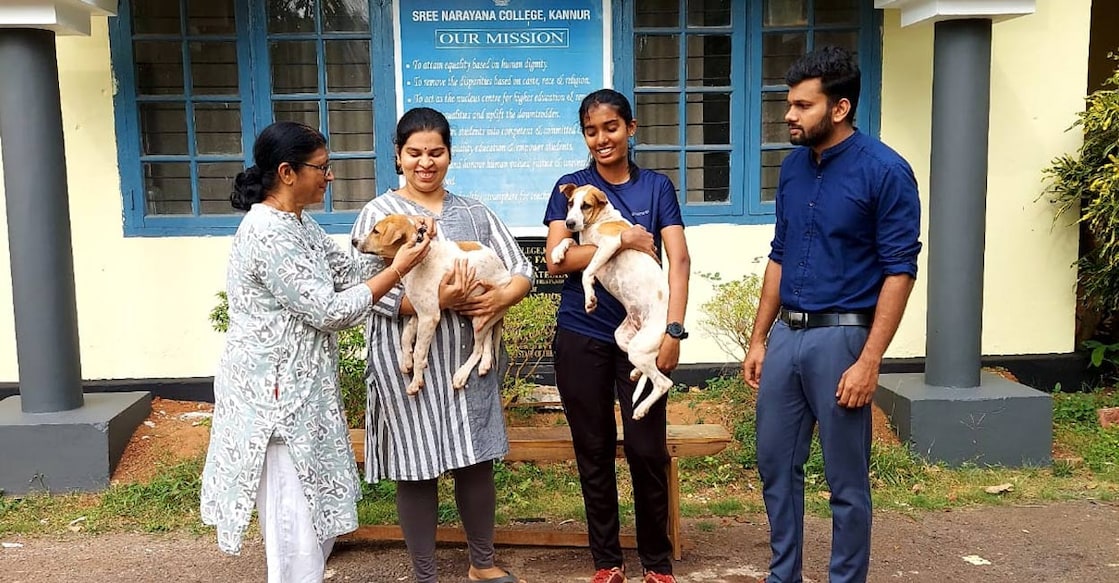Dogs on Kannur SN College campus have QR code to track vaccination history

Mail This Article
In an innovative step towards improving animal welfare and public safety, the NGO People For Animals' Welfare, in collaboration with SN College Kannur, has launched an initiative to track the vaccination status of stray dogs using QR codes.
Under this programme, stray puppies aged two to three months are put up for adoption, and the ones that do not find a home are fitted with special belts with a unique QR code. When the code is scanned, the user is redirected to a website that provides immediate access to the dog's vaccination history, due dates for upcoming shots, and key details such as age, breed, and sex.
Although many stray dogs had been vaccinated previously, there wasn't any clear way to identify the ones that had received treatment, leading to missed immunisations and repeated efforts. When the dogs attain seven to eight months of age, they are sterilised, a critical step in controlling the stray population.
"With this system, we can now efficiently manage the health of dogs and people here; with the help of feeders and dog catchers, it's easier to approach, vaccinate and tag the dogs," said Prof Nithinya Ramakrishnan, professor of Zoology, SN College. She said government support would greatly help expand and sustain the programme as vaccination and sterilisation require significant funding.
Six dogs on the SN College campus have already been vaccinated, and two puppies have been tagged with QR codes. In the past few years, the local bodies' anti-rabies vaccination campaign for stray dogs has hit a stumbling block, with authorities failing to keep proper records of vaccination history.
The QR code is protected by a plastic shield coating stitched to it, ensuring it doesn't fade away or get damaged over time.

